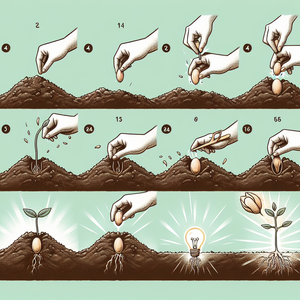Behind the Scenes: A Day in the Life of a TSA Agent

TSA agents often start their day before dawn, heading to the airport as early as 4 a.m. to prepare for the first wave of travelers. The day kicks off with a briefing session where agents discuss security updates, potential threats, and operational protocols. This preparatory phase is vital for ensuring that agents are well-informed and ready to tackle the day’s challenges. Once the briefing concludes, agents proceed to their designated checkpoints. Their primary mission is to ensure the safety of passengers and crew members, which entails thorough screening of luggage, monitoring passenger behavior, and identifying potential security threats. The stakes are high, as TSA agents must balance safety with efficiency, all while maintaining a calm demeanor under pressure.
Skills in Action: Screening and Interacting with Passengers
A significant portion of a TSA agent's day is spent at the security checkpoints, where they utilize an array of skills. Agents are trained to operate advanced screening equipment, including X-ray machines and body scanners, which allow them to detect prohibited items. They must remain vigilant and alert, as even a small oversight can lead to serious consequences. In addition to technical skills, interpersonal abilities are equally important. TSA agents frequently interact with travelers from diverse backgrounds, each with unique needs and concerns. Patience and empathy are essential traits, particularly during busy travel seasons when tensions can run high. A friendly demeanor can help alleviate passenger anxiety and create a more pleasant experience for everyone involved.
Challenges: Navigating the Unexpected
Despite their extensive training, TSA agents encounter numerous challenges throughout their shifts. Long lines are a common occurrence, and agents must remain composed while addressing passenger concerns and keeping the flow of travelers moving. They also face difficult situations, such as dealing with passengers who refuse to comply with security protocols or those attempting to smuggle prohibited items. One of the most daunting aspects of the job is the constant need to stay alert for potential threats. TSA agents undergo rigorous training to recognize suspicious behavior and adapt to evolving security measures. This vigilance is vital to national security, as they are the first line of defense against potential risks. For example, agents must be able to identify unusual patterns or behaviors that could indicate a security threat, such as a passenger who appears overly anxious or is traveling with an unusually large amount of cash.
Rewarding Moments: Making a Difference
Despite the challenges, many TSA agents find their work deeply rewarding. The knowledge that they contribute to the safety of millions of travelers each day provides a strong sense of purpose. Agents often share stories of helping passengers, such as reuniting them with lost items or assisting those with special needs. Moreover, the camaraderie among TSA agents fosters a supportive work environment. Many agents develop strong bonds with their colleagues, sharing experiences and learning from one another. This sense of community can be uplifting, especially during demanding shifts. For instance, a team that successfully manages a busy checkpoint during peak hours often celebrates together, reinforcing their collective sense of achievement.
A day in the life of a TSA agent is a blend of routine, challenges, and rewarding experiences. From early morning briefings to the dynamic environment of security checkpoints, these dedicated professionals play an indispensable role in maintaining the safety and security of air travel. By understanding the complexities of their job, we can appreciate the commitment and expertise that TSA agents bring to every shift. As travelers, the next time we pass through security, let us remember the people behind the scanners. Their diligence and professionalism ensure that our journeys are as safe and secure as possible. In a world where safety is paramount, the work of TSA agents is not just a job; it is a vital service that deserves recognition and respect.
Airport Security Supervisor
Major airports, private security firms, and government agencies
Core Responsibilities
Oversee daily operations of security teams at airport checkpoints.
Conduct regular training and evaluations to ensure compliance with TSA regulations.
Coordinate responses to security breaches or emergencies in collaboration with law enforcement.
Required Skills
Strong leadership and communication skills to manage a diverse team.
In-depth knowledge of TSA policies and security protocols.
Experience in threat assessment and crisis management.
Transportation Security Officer (TSO)
TSA, airport authorities, and aviation security contractors
Core Responsibilities
Perform detailed screening of passengers and baggage using advanced detection technology.
Identify and report suspicious behavior in compliance with security guidelines.
Provide assistance and information to passengers to enhance their travel experience.
Required Skills
Proficiency with security screening equipment and software.
Excellent interpersonal skills to manage passenger interactions effectively.
Ability to work under pressure and maintain attention to detail.
Aviation Security Consultant
Airlines, airport management firms, and security consulting agencies
Core Responsibilities
Assess and develop security policies for airlines and airport operations.
Conduct audits of existing security measures to identify vulnerabilities.
Provide training workshops for staff on best practices in aviation security.
Required Skills
Extensive knowledge of aviation security regulations and compliance standards.
Strong analytical skills to evaluate security systems and protocols.
Experience in risk management and incident response planning.
Customer Service Representative (Aviation Sector)
Airlines, airport information desks, and travel agencies
Core Responsibilities
Assist passengers with inquiries related to flight information, check-in procedures, and security protocols.
Handle complaints and resolve issues to ensure a positive travel experience.
Collaborate with security teams to ensure compliance with safety regulations during customer interactions.
Required Skills
Exceptional communication and problem-solving skills.
Experience in dealing with diverse customer needs and high-stress situations.
Familiarity with airline operations and security measures.
Security Technology Specialist
Security technology firms, airport security departments, and government agencies
Core Responsibilities
Maintain and troubleshoot advanced security screening technologies used in airports.
Work with manufacturers to implement software updates and new security features.
Train TSA agents and security personnel on the operation of new equipment.
Required Skills
Technical expertise in electronic security systems and software applications.
Strong problem-solving skills to address technical issues promptly.
Knowledge of security regulations and technology integration in aviation.


